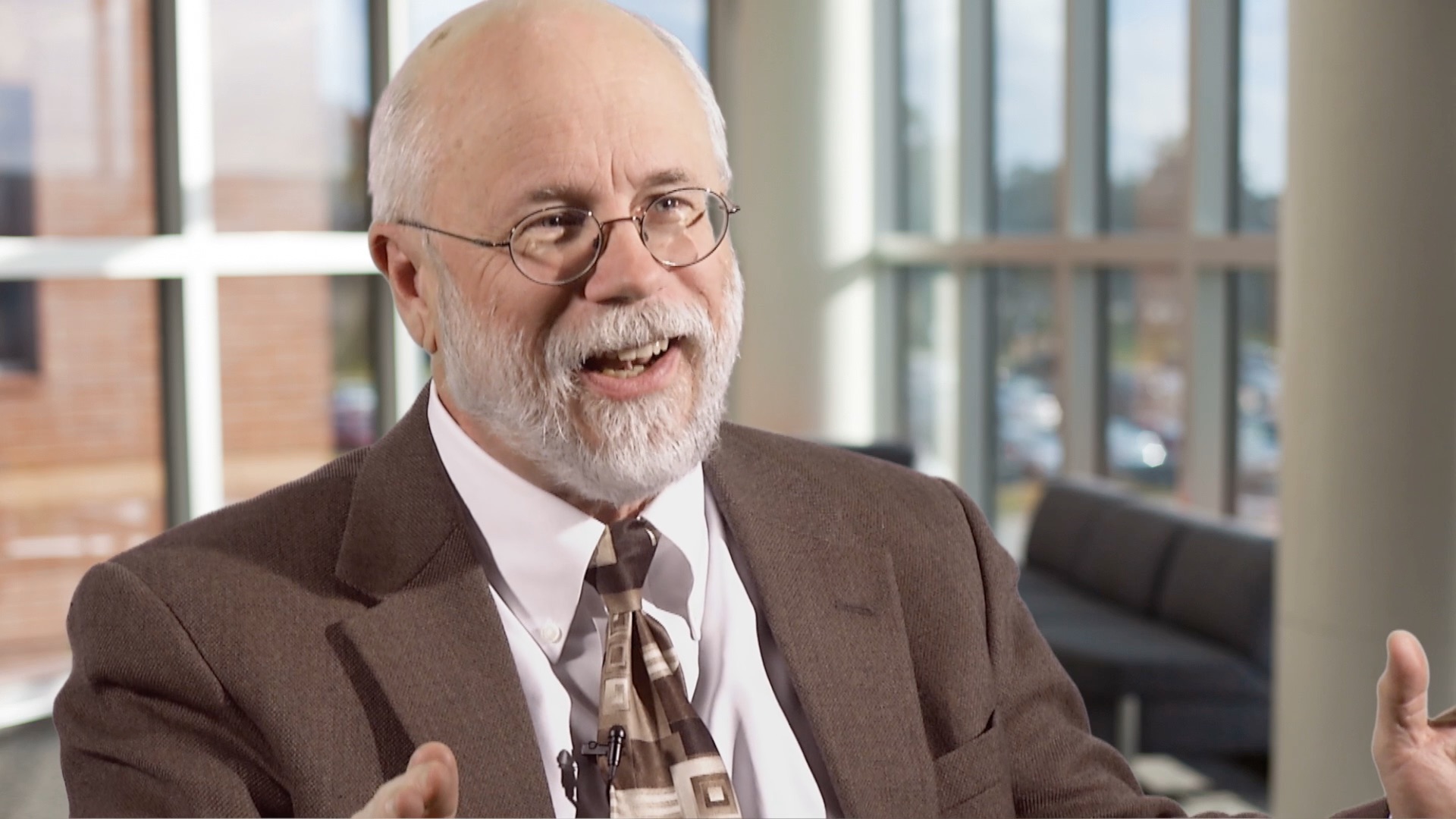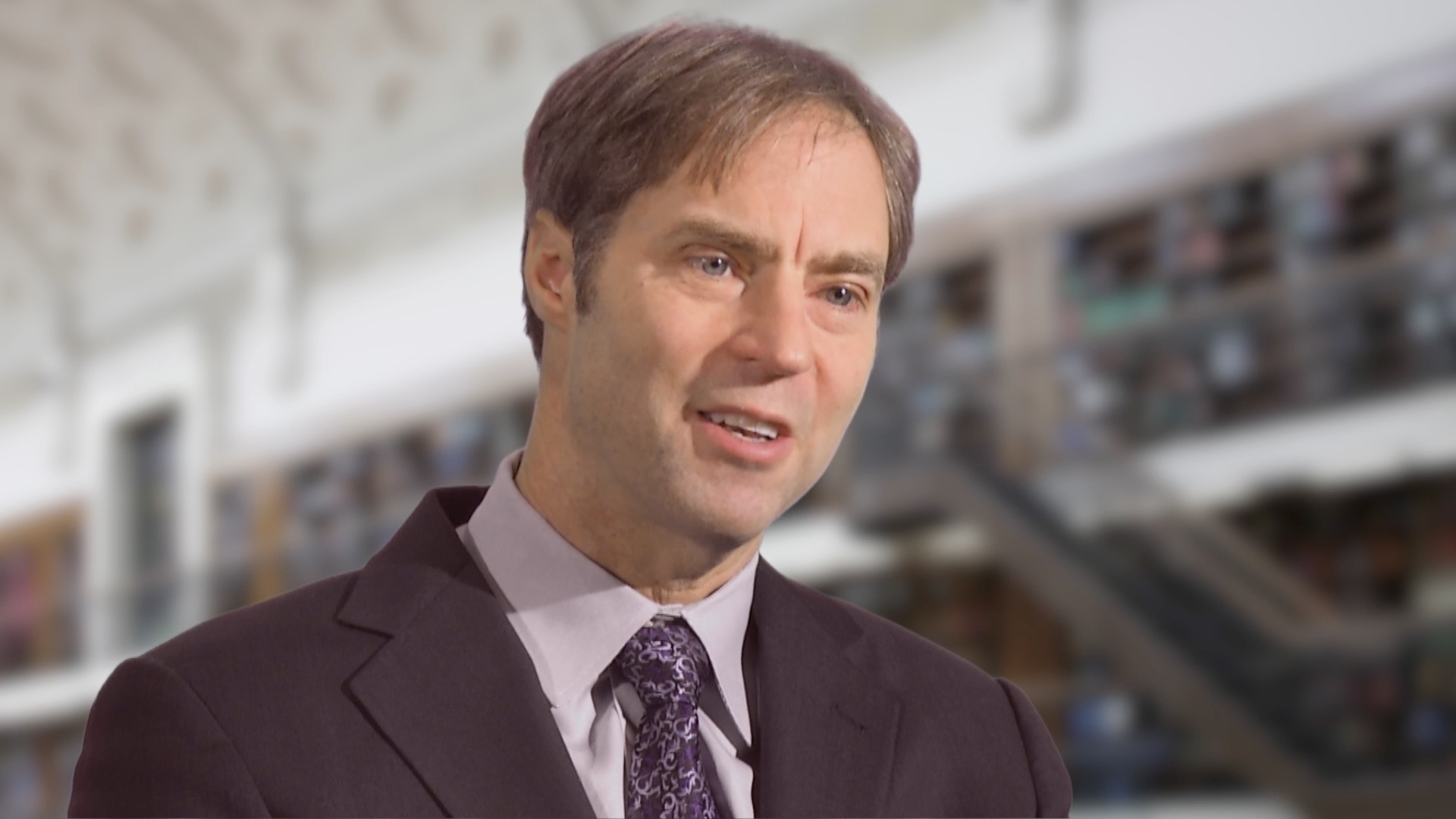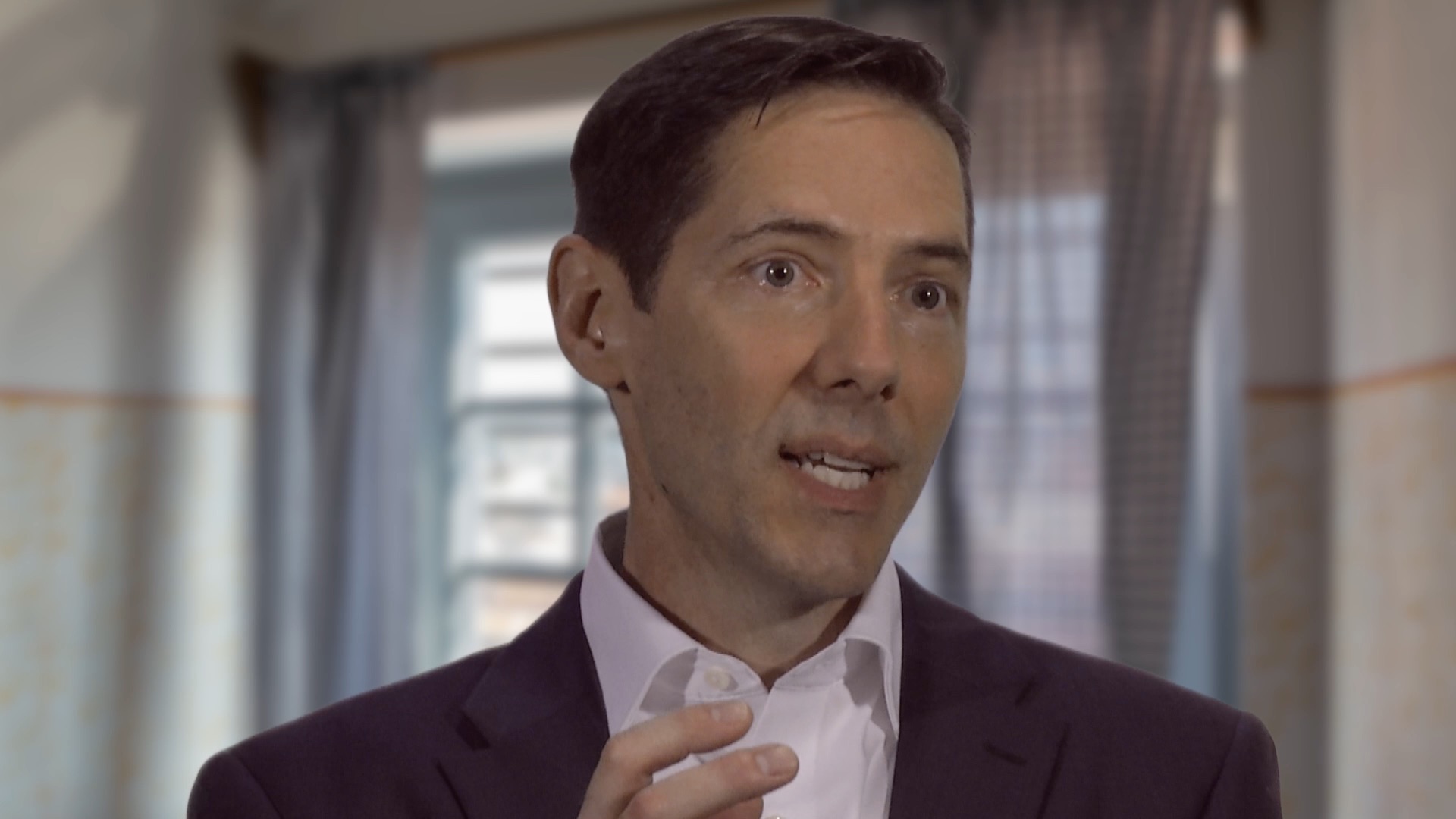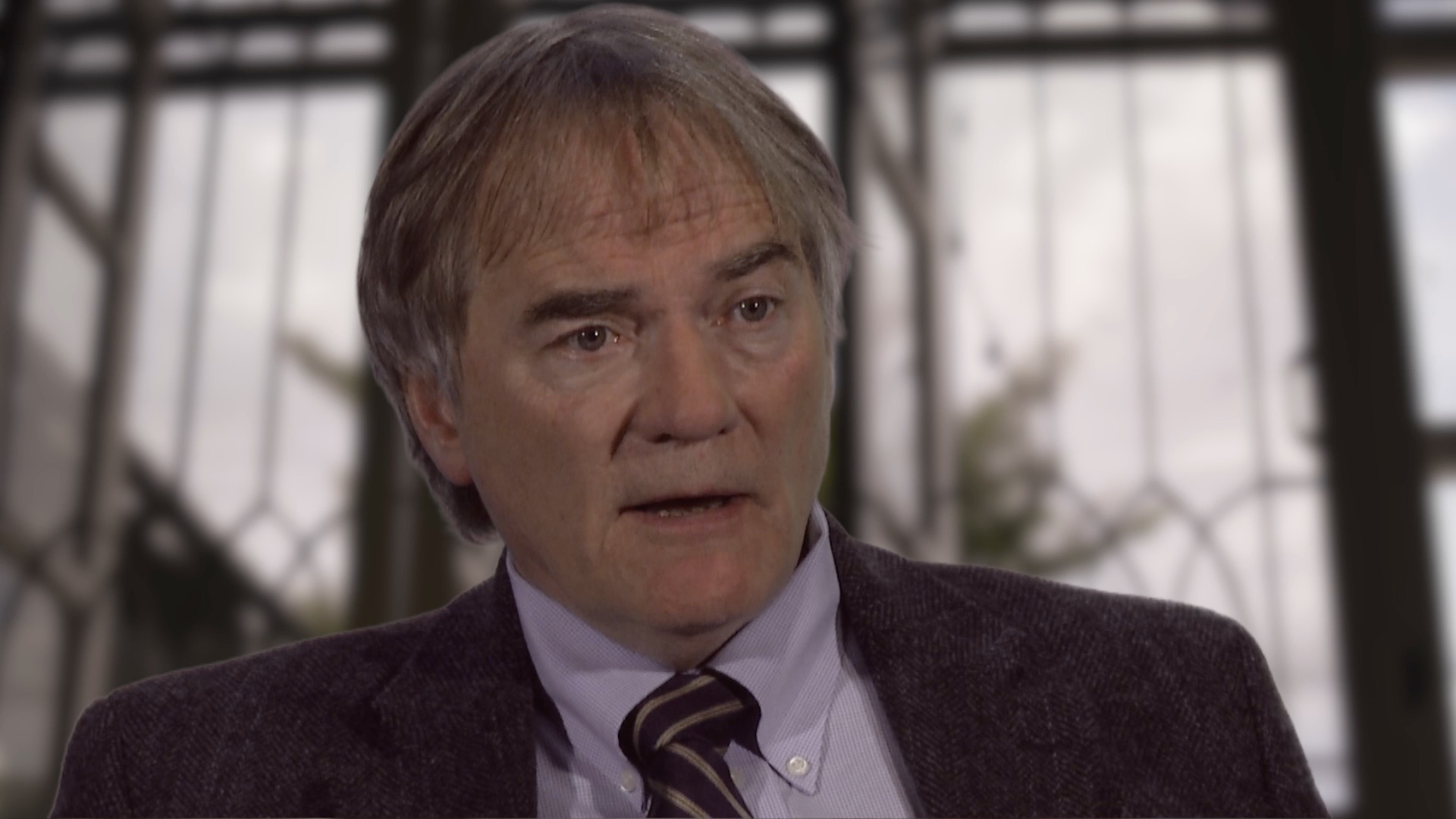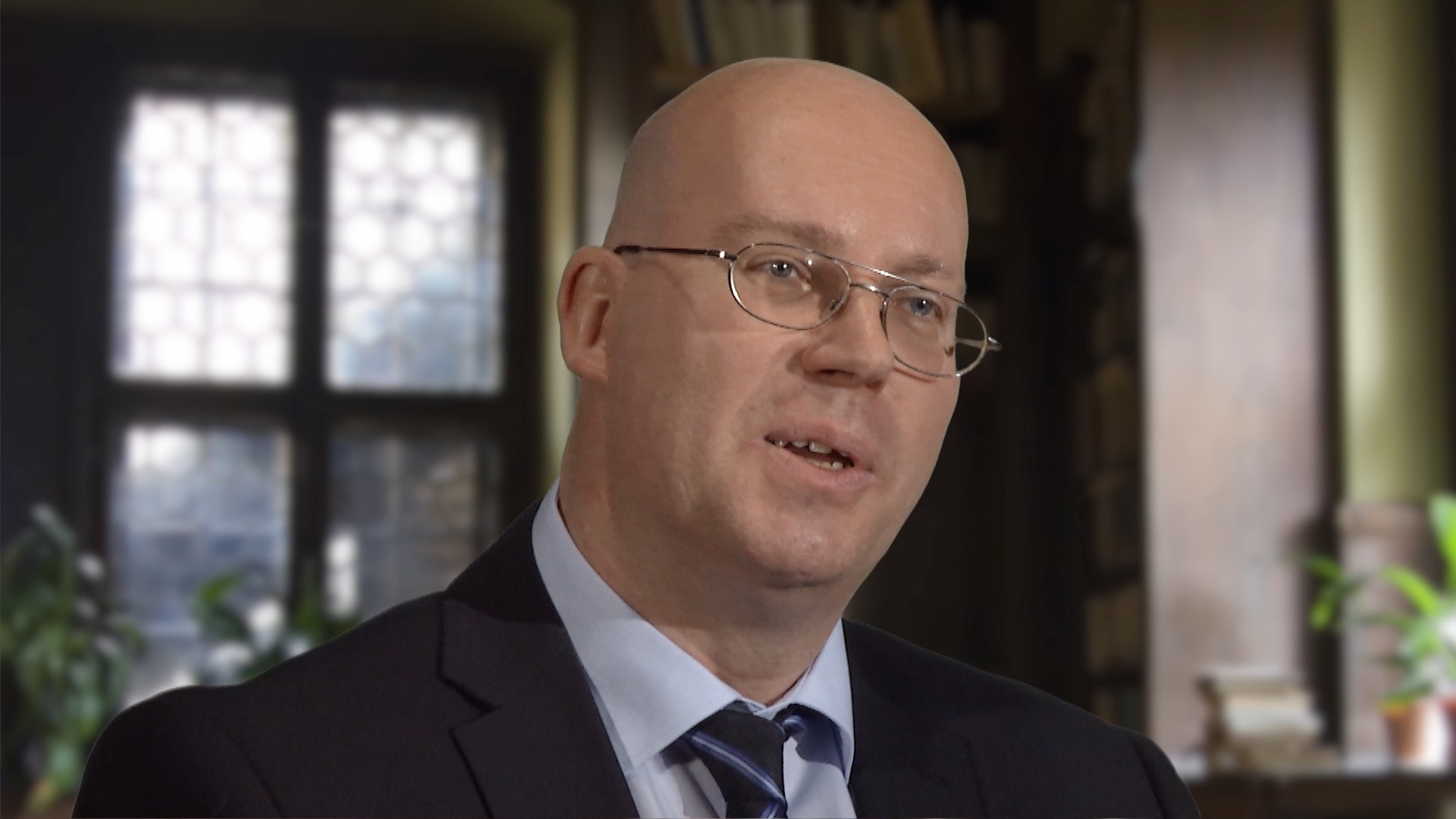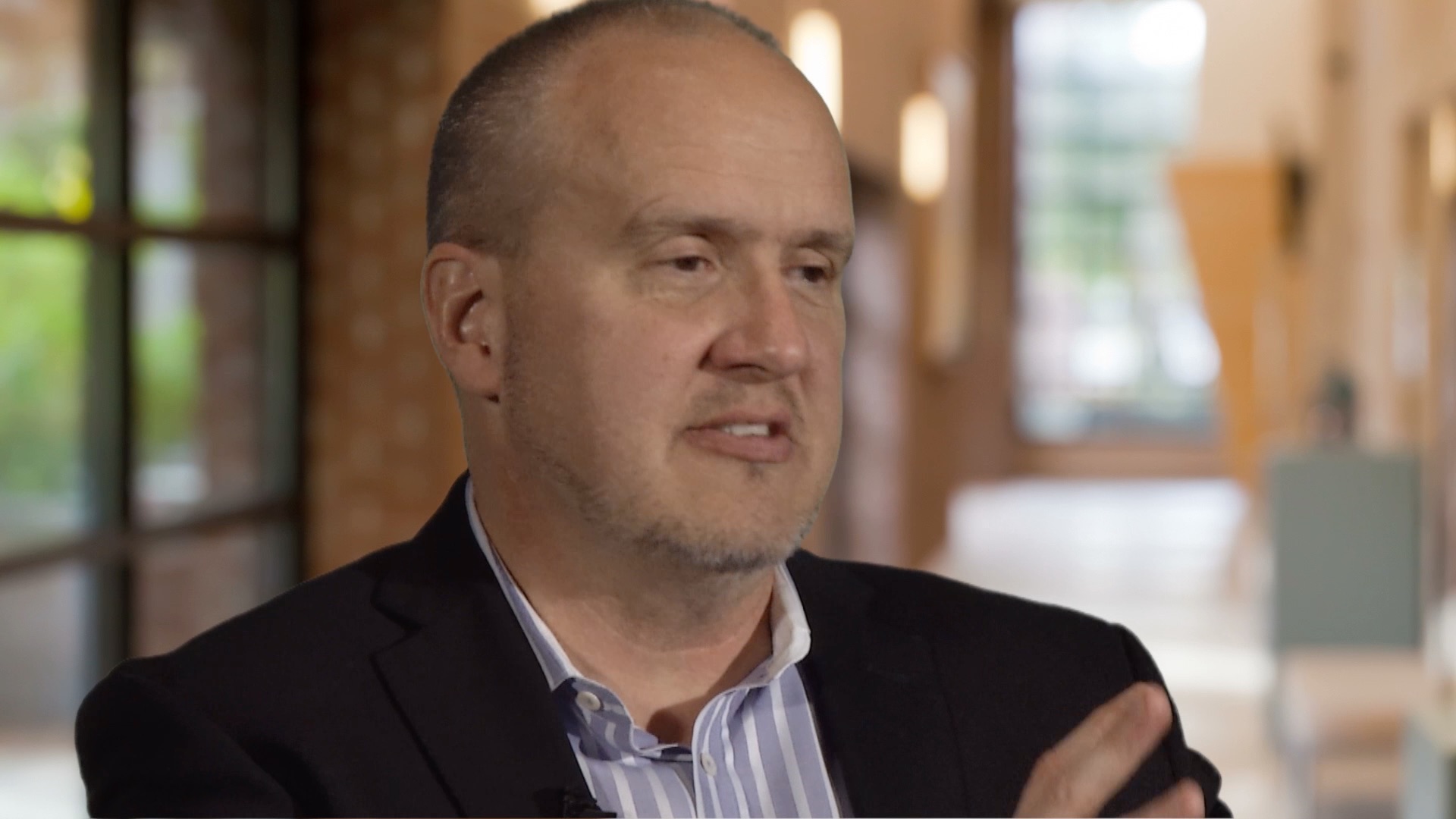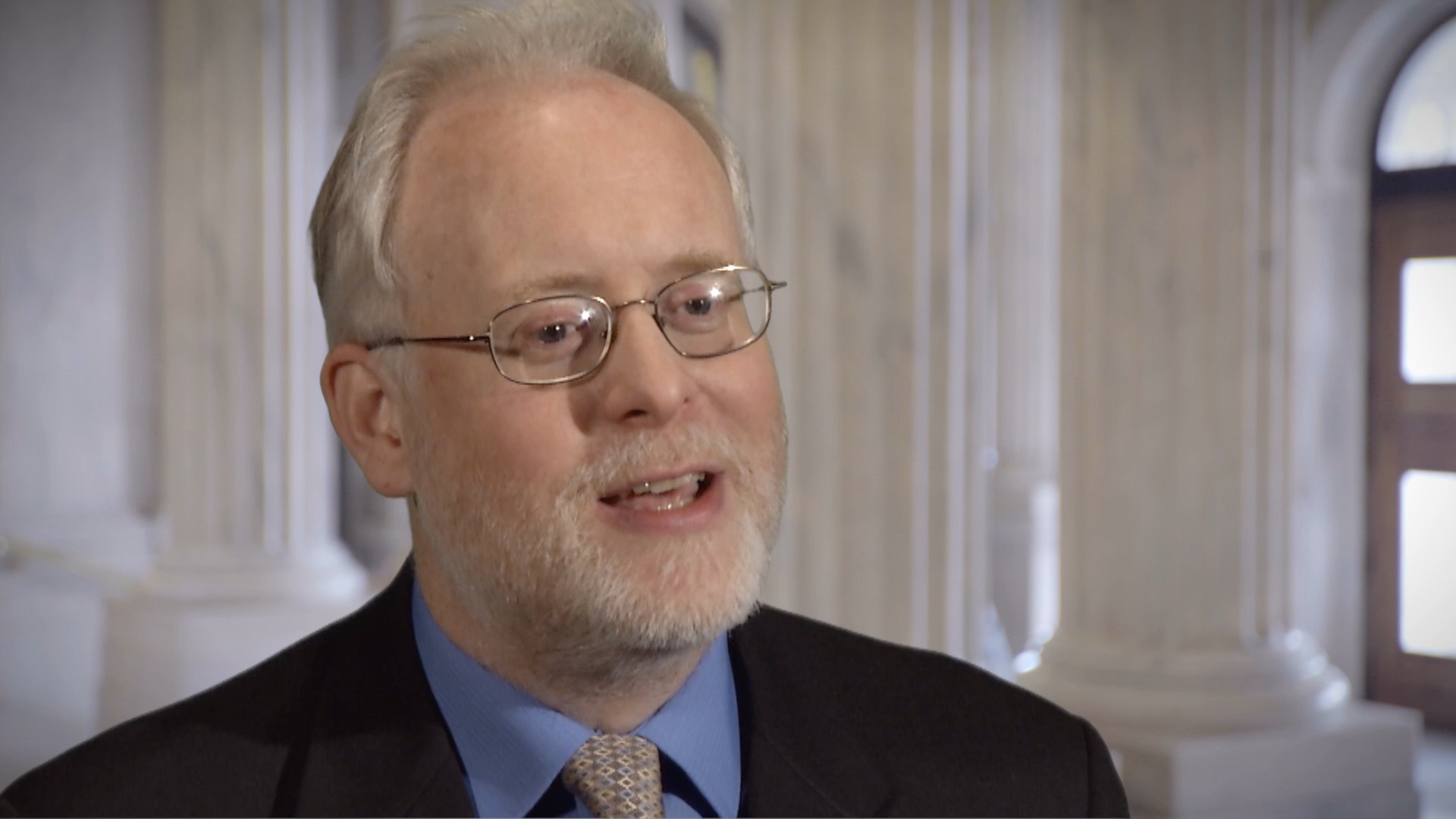
Revolutionaries
Michael Behe
Michael J. Behe is Professor of Biological Sciences at Lehigh University in Pennsylvania and a Senior Fellow at Discovery Institute’s Center for Science and Culture. He received his Ph.D. in Biochemistry from the University of Pennsylvania in 1978. Behe’s current research involves delineation of design and natural selection in protein structures. In addition to publishing over 35 articles in refereed biochemical journals, he has also written editorial features in Boston Review, American Spectator, and The New York Times. His book, Darwin’s Black Box discusses the implications for neo-Darwinism of what he calls “irreducibly complex” biochemical systems. The book was internationally reviewed in over one hundred publications and named by National Review and World magazine as one of the 100 most important books of the 20th century. Behe has presented and debated his work at major universities throughout North America and England.
Stephen Meyer
Stephen C. Meyer received his Ph.D. in the philosophy of science from the University of Cambridge. A former geophysicist with ARCO and philosophy professor at Whitworth University, Meyer now directs Discovery Institute’s Center for Science and Culture in Seattle, which he co-founded in 1996. Meyer has authored the New York Times best seller Darwin’s Doubt: The Explosive Origin of Animal Life and the Case for Intelligent Design (HarperOne, 2013) as well as Signature in the Cell: DNA and the Evidence for Intelligent Design (HarperOne, 2009), which was named a Book of the Year by the Times (of London) Literary Supplement in 2009. Meyer’s many other publications include contributions to, and the editing of, the peer-reviewed volume Darwinism, Design and Public Education (Michigan State University Press, 2004) and the innovative textbook Explore Evolution (Hill House Publishers, 2007). Meyer has also published essays in media outlets such as The Wall Street Journal, USA Today, The National Post (of Canada), The Daily Telegraph (of London), and The Los Angeles Times. He has appeared on national television and radio programs such as The Jim Lehrer News Hour, NBC Nightly News, ABC Nightly News, CBS Sunday Morning, Nightline, Fox News Live, Paula Zahn Now (CNN), Good Morning America and the Tavis Smiley Show on PBS. He has also been featured in two New York Times front-page stories and has garnered attention in other top national media.
Website of Signature in the Cell
Douglas Axe
Douglas Axe is the director of Biologic Institute and author of Undeniable: How Biology Confirms Our Intuition that Life Is Designed. His research uses both experiments and computer simulations to examine the functional and structural constraints on the evolution of proteins and protein systems. After a Caltech PhD he held postdoctoral and research scientist positions at the University of Cambridge, the Cambridge Medical Research Council Centre, and the Babraham Institute in Cambridge. His work and ideas have been featured in many scientific journals, including the Journal of Molecular Biology, the Proceedings of the National Academy of Sciences, and Nature, and in such books as Signature in the Cell and Darwin’s Doubt by Stephen Meyer, Life’s Solution by Simon Conway Morris, and No Free Lunch by William Dembski.
Scott Minnich
Scott Minnich holds a Ph.D. from Iowa State University and is currently a Professor of Microbiology at the University of Idaho and a Senior Fellow at the Discovery Institute’s Center for Science and Culture. Previously, Dr. Minnich was an Assistant Professor at Tulane University. In addition, he did postdoctoral research with Austin Newton at Princeton University and with Arthur Aronson at Purdue University. Dr. Minnich’s research interests are temperature regulation of Y. enterocolitca gene expression and coordinate reciprocal expression of flagellar and virulence genes. In 2004 Minnich served as part of the United State’s Iraq Survey Group (ISG) tasked with reviewing captured mobile weapons laboratories, and determining what role if any they played in microbial weapons production. Minnich is widely published in technical journals including Journal of Bacteriology, Molecular Microbiology, Journal of Molecular Biology, Proceedings of the National Academy of Sciences, Journal of Microbiological Method, Food Technology, and the Journal of Food Protection. Minnich is also a co-author of the textbook Explore Evolution.
Günter Bechly
Günter Bechly is a German paleo-entomologist who specializes in the fossil history and systematics of insects (esp. dragonflies), the most diverse group of animals. He is currently curator for amber and fossil insects in the department of paleontology at the State Museum of Natural History (SMNS) in Stuttgart, Germany. He is also a Senior Fellow with Discovery Institute’s Center for Science and Culture. Dr. Bechly earned his Ph.D. in geosciences from Eberhard-Karls-University in Tübingen, Germany.
Paul Nelson
Paul A. Nelson is a Senior Fellow of Discovery Institute’s Center for Science and Culture and an Adjunct Professor in the Master of Arts Program in Science & Religion at Biola University. He is a philosopher of biology who has been involved in the intelligent design debate internationally for over two decades. He received his Ph.D. in the philosophy of biology and evolutionary theory from the University of Chicago. Dr. Nelson lectures frequently at colleges and universities throughout the United States and Europe, has spoken on American and Italian national public radio, and has written for a variety of popular publications. His articles have appeared in journals such as Biology & Philosophy, Zygon, Rhetoric and Public Affairs, and Touchstone, and he has contributed book chapters to Mere Creation (InterVarsity Press), Signs of Intelligence (Brazos), Intelligent Design Creationism and Its Critics (MIT Press), and Darwin, Design, and Public Education (Michigan State University Press). Paul is one of the authors of the biology textbook Explore Evolution, and has appeared in several films on intelligent design for Illustra Media. He is a member of the Society for Developmental Biology (SDB) and the International Society for the History, Philosophy, and Social Studies of Biology (ISHPSSB).
John G. West
John G. West is a Vice President and Senior Fellow at Discovery Institute, where he also serves as Associate Director of the Institute’s Center for Science & Culture, which he co-founded with philosopher of science Stephen Meyer in 1996. Dr. West’s current research examines the impact of science and “scientism” on public policy and culture. West was previously an Associate Professor of Political Science at Seattle Pacific University, where he chaired the Department of Political Science. He has written or edited twelve books, including The Magician’s Twin: C.S. Lewis on Science, Scientism, and Society; Darwin Day in America: How Our Politics and Culture Have Been Dehumanized in the Name of Science; Darwin’s Conservatives: The Misguided Quest; and The C.S. Lewis Readers’ Encyclopedia. Additionally, Dr. West has directed and written several documentaries, including Darwin’s Heretic, The War on Humans, The Biology of the Second Reich, and Privileged Species. Listed in Who’s Who in America, he has been interviewed by Time, Newsweek, USA Today, The Washington Post, and The New York Times, and he has appeared on CNN, FoxNews, and C-SPAN. Dr. West holds a Ph.D in Government from Claremont Graduate University and a B.A. in Communications from the University of Washington.
More Revolutionaries
Learn about many of the other revolutionaries in the intelligent design movement at the website of the Center for Science and Culture at Discovery Institute.
